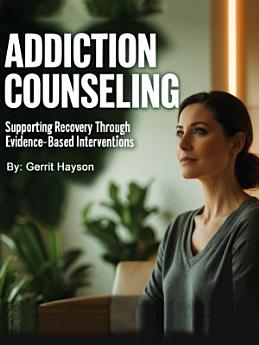Addiction Counseling: Supporting Recovery Through Evidence-Based Interventions
About this ebook
The neurobiological basis of addiction involves alterations in brain circuits responsible for reward, motivation, memory, and executive control. When someone repeatedly uses substances or engages in addictive behaviors, these neural pathways become hijacked, creating powerful drives that can override rational decision-making processes. The prefrontal cortex, responsible for impulse control and decision-making, becomes impaired while the limbic system's reward circuitry becomes hyperactivated in response to addiction-related cues.
This biological reality does not diminish personal responsibility but rather provides a framework for understanding why traditional approaches emphasizing willpower alone often prove insufficient. Recovery requires comprehensive intervention that addresses both the neurological changes and the psychological, social, and spiritual dimensions of the individual's experience. Effective addiction counseling recognizes this complexity and employs evidence-based strategies that work with, rather than against, the realities of how addiction affects the brain and behavior.







